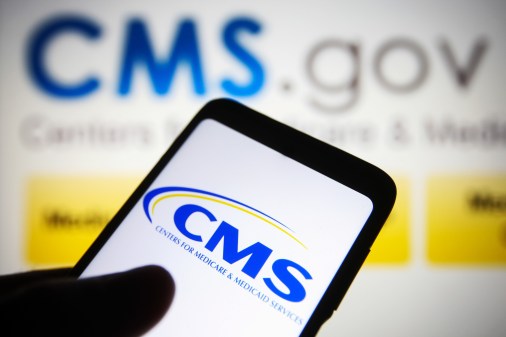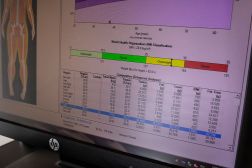The growth of CMS data under Niall Brennan
In recent years, the Centers for Medicare and Medicaid Services has released millions of lines of data related to the two federal health care plans. And according to Chief Data Officer Niall Brennan, behind those hefty data sets, there’s still a large portion of CMS programming waiting to be unleashed.
As an agency that holds large amounts of information — much of it sensitive — CMS releases a relatively large percentage of data, Brennan told FedScoop. He said CMS publishes data on the majority of Medicare’s activities, including on things like physician payments and Medicare Part D prescriptions. (Though, it publishes less from Medicaid, he said.) But Brennan said it wasn’t that way when he first arrived at the agency.

CMS Chief Data Officer Niall Brennan (CMS)
“It was clear to me that we were not optimizing our data resources to the fullest extent that we could,” said Brennan, who joined CMS in 2010 as deputy and acting director of the Policy and Data Analysis Group. “We were doing a lot of stuff with data, but there was clearly more that we could do, particularly with a view towards external stakeholders. We had a long way to go on the transparency side of things.”
Venturing on “an organizational odyssey since then,” Brennan in November formally took over as chief data officer, an IT leadership position becoming more popular in the federal government, especially in agencies sitting on vast troves of data, like the Commerce and Transportation departments.
The governance of CMS data was one of Brennan’s main focuses even before he became the agency’s chief steward of it, and he’s been continually pushing for the opening of more data to the public. He described his role as CMS chief data officer as split between concentrating on governance and performing analytics on the data to more globally effect health care reform.
“If you look back three years ago, we had no information” on common trends like hospital charges for frequent discharges, how physicians practice medicine and prescribe drugs under Medicare, he said. “Those are huge advances, not only from a transparency perspective, but also for folks incorporating them into tools that help patients and other businesses better understand our health care system.”
That’s why Medicare and Medicaid data is so important, Brennan said. Visiting a physician is something almost every American will do each year. But when it comes to shopping for a doctor or learning about other health care trends, the data historically just hasn’t been there.
“The practice of medicine for many years has been somewhat shrouded in mystery,” he said. “There’s natural inclination for folks to want to know more about the institutions and providers that they engage with when they’re in some case at their most vulnerable or needy.”
It also has to do with following the money, he said. “Health care accounts for roughly 20 percent of our economy. CMS influences hundreds of billions of dollars a year in health care spending. People aggressively comparison shop for cars, clothes or whatever it is. I think what we’re seeing now is the beginning of greater patient activation in health care.”
For its data to make the biggest impact, CMS can’t operate in a vacuum. Perhaps equal in importance to publishing the data for patient consumption is providing it to researchers and private industry to explore new uses.
“We definitely want other folks to take that data, analyze the data and combine it with data from sources that we may not have but they have to create interesting insights that can help people understand the health care system better,” Brennan said. “We are intrinsically limited in terms of human physiology in terms of how many ways we can look at the data. We also tend to look at the data from a certain viewpoint, and I think getting fresh eyes on this data” is important.
So Brennan and CMS look to continue opening up as much data as they can. He couldn’t go into specifics on the next data releases the agency is exploring, but he did point to Medicaid data and Medicare Advantage data as areas that needed improvement. Likewise, earlier this year, CMS Administrator Andy Slavitt, to whom Brennan reports directly, announced a new policy offering entrepreneurs and innovators access to all CMS data through its Virtual Research Data Center, a privilege previously limited to researchers. Additionally, the data will be update more frequently.
“Historically, CMS has prohibited researchers from accessing detailed CMS data if they intended to use it to develop products or tools to sell,” Brennan said about the change, announced June 2. “However, as the delivery system transforms from rewarding volume to value, data will play a key role. We hope that this new policy will lead to additional innovation and insights from the CMS data.”






